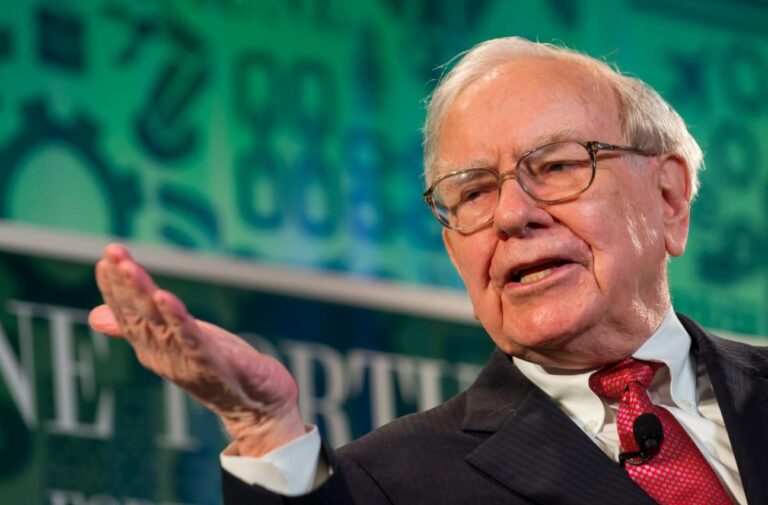Investing in the stock market in a safe way is not easy. And one of the rules of finance is that there are no 100% safe investments, but there is the possibility of operating methodically by carrying out analyzes and assessments that maximize profits and minimize risks.
The method used by Warren Buffett, probably the greatest investor ever, is based on some fundamental rules for evaluating a company in which to invest. Thanks to these rules Warren Buffett became one of the richest men in the world and earned the title of Oracle of Omaha.
Table of Contents
Who is Warren Buffett
For those interested in economics and finance, Warren Buffett needs no introduction, he is probably the most important and famous investor of all time, with an incredible analytical ability in predicting the evolution of markets and the stock exchange, not to case is nicknamed the Oracle of Omaha.
If there is someone capable of predicting the future, it is certainly Warren Buffett. And his ability derives not from magical abilities. But from a profound spirit of analysis and from some golden rules that the American entrepreneur has followed throughout his life.
Born Warren Edward Buffet in 1930, Warren Buffett began his entrepreneurial adventure in 1962 at the age of 32 when he purchased, for about $7.50 each, shares of an Omaha textile company called Berkshire Hathaway.
The company was on the verge of bankruptcy and Buffett, together with his partners, decided to transform and reorganize it, making it the cornerstone of his financial empire.
And, after just 3 years, with Berkshire Hathaway he began to buy other companies in different sectors. Thus making Warren Buffet one of the richest men in the world. With a net worth estimated by Forbes to be around $116 billion.
Warren Buffett’s golden rules
Warren Buffet’s fortune, as anticipated, does not derive from mystical abilities. But from his incredible ability to analyze the market and the global economy.
This ability derives from some rules that the American entrepreneur has followed since the early 1960s and ensures that its more than 383,000 collaborators also respect these rules.
- Managers must have rationally managed shareholders’ money
- The company must have truly increased the earnings of its shareholders over time
- At the time of purchase, the price must be at least 25% lower than the intrinsic value
- Managers must be able to convert sales into profits
- The company must have avoided excessive debt
- The company must have performed consistently
- Managers must have truly increased shareholder value
Looking at these rules, one can easily observe that they are less purchasing rules and more evaluation rules.
For the number 1 entrepreneur in the world it is essential to carry out a good evaluation of the companies in which he intends to invest and for the evaluation to produce positive results, it is important to pay attention to both the state of health of the company and the capabilities of its managers.
The “one dollar for one dollar” rule
Of the seven rules mentioned above, some are more important than others, but all are fundamental to investing successfully. Rule number seven for example is also known as “one dollar for one dollar” and is a famous rule in the financial world.
Every year, companies, through their balance sheet, decide how much of the net profit will be retained by the company. And how much will be distributed to shareholders, in the form of dividends.
The share retained by the company is the most “important” one for an entrepreneur. This is because the future of the company itself largely depends on it. In fact, if this quota is used well, then the market will reward that choice, increasing the value of the security.
The one dollar for one dollar rule requires that for every dollar retained by the company, at least one dollar of capitalization is created. If this condition is satisfied then there is confirmation that the managers have been able to really increase the value of the stock and consequently it is potentially a good company to invest in.
25% safety margin
Another extremely important rule is number three. That is, buy when the price is at least 25% lower than the intrinsic value.
This rule is extremely important due to two factors. The first is the impossibility of predicting the future of a stock with absolute certainty. The second is the difficulty in quantifying the real value of a company due to constant market fluctuations.
For these reasons Warren Buffett recommends maintaining a safety margin of 25% and the risk of estimation errors is reduced to a minimum.
If you make an error in evaluation with an excess estimate of 10%, thanks to the 25% margin, you will still have an adequate return, if the estimate is correct or incorrect, the return will be significant.
Avoid excess debt
When evaluating a company to invest in, its state of health is fundamental. It is therefore necessary to avoid investing in companies that have contracted excessive debts.
Debt is not always a negative thing, for example many billion-dollar companies are heavily indebted. However it is a debt that is less than their cash flow capacity and can be easily liquidated.
Buffett believes that a good business must have the ability to earn money without taking advantage of the leverage of debt. That is, a company’s debt must remain below a certain safety limit in relation to the cash flow generated.
Read also: How to double your savings with the Warren Buffett method












